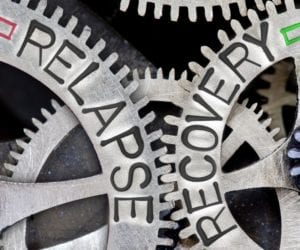Signs of a Drug Relapse

Determining Signs of a Drug Relapse
Recovery is a long and tough process that takes commitment, willpower, and a desire to learn to stay sober. While it is not a goal, unfortunately, relapse is often part of the recovery process. This leads to a number of questions, “why do drug addicts relapse”, and, “what are the signs of a drug relapse”. We have answers that can help guide you through these, sometimes difficult, questions in determining the signs of a drug relapse.
What is a Relapse?
A relapse is any return to the use of alcohol or drugs after a period of sobriety. Once drug and alcohol abuse stops, it can go into a type of remission, like most diseases. Simply put, a relapse is the resurfacing of this abuse. During recovery, there may be any number of triggers or cravings that can make you want to return to substance abuse, triggering a relapse.
Regrettably, relapses are relatively common among recovering addicts, but that does not mean that they cannot be stopped or prevented. A relapse prevention plan can do wonders for addicts in recovery, giving them a set plan to follow whenever they feel the urge to return to their substance of choice.
So, why do drug addicts relapse? Generally speaking, this is due to a fault in the relapse prevention plan, or the recovering addict simply not following the relapse prevention plan. In fact, deviation from the relapse prevention plan can be one of the man signs of a drug relapse.
The Relapse Cycle and Relapse Warning Signs
While some relapses may be the result of a momentary lapse of judgment, the vast majority of drug relapses are downward spirals, and slow returns to old, unhealthy, compulsive behaviors that, more often than not, lead to a physical relapse. Learning the basic relapse warning signs can be a great aid to recovering addicts, as it gives them behaviors to look for and avoid as they attempt to maintain a healthy, sober lifestyle.
Signs of a Drug Relapse
Emotional Relapse: The emotional relapse is a term used to describe a return to old emotional behaviors related to compulsive behavior. A great example of this would be a sudden shift in mood, in which the recovering addict begins using a poor coping mechanism, adopting a worsening attitude.
Mental Relapse: The mental relapse is a return to old ways of thinking. This can include using outside, temporary methods to cope with hard times, a generally negative outlook, romanticizing drug use, or viewing relapse as inevitable.
Physical Relapse: The physical relapse is the most obvious and apparent of the stages, this is when the recovering addict makes the final step, returning to the abused substances and breaking their period of sobriety.
These stages can last long periods of several months, or as short as a few hours–depending on the addict’s state of sobriety. Generally speaking, it is more common for the relapse process to take an extended period of time, giving the addict and loved ones a chance to spot the relapse warning signs.
Signs of a Drug Relapse
Relapse is an unfortunate, long, and, painful process. If you ask experts about the relapse process, they will describe the issue as a change in behavior and a return to compulsive habits, with drug abuse as a symptom or contributing factor. This is to say that the repercussions and warning signs of a relapse are far from being solely drug related.
Relapse Warning Signs
- Self Destructive or Negative Thoughts
- Compulsive Habits or a Resurgence of Compulsive Behavior
- Neglect of Basic Coping Habits or Recovery Maintenance
- Return to Unhealthy Environments, Relationships, or Behaviors
- Depression, Anxiety, or Erratic Mood Swings
- Pushing Away Loved Ones; Isolating
From the outside, treatment and rehab facilities can seem like a one-stop solution, likened to medication that cures addiction, but they are not one-time solutions. Recovery and addiction treatment starts with treatment facilities and continues with a lifestyle of healthy coping mechanisms and relapse prevention. Rehabs assist with putting addiction into “remission” (sobriety), but healthy habits keep addiction from resurfacing. Ignoring or neglecting these habits will certainly result in a sudden rise of relapse warning signs.
If you or a loved one needs help with abuse and/or treatment, please call the WhiteSands Treatment at (877) 855-3470. Our addiction specialists can assess your recovery needs and help you get the addiction treatment that provides the best chance for your long-term recovery.
